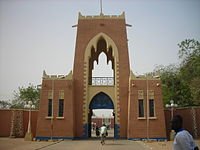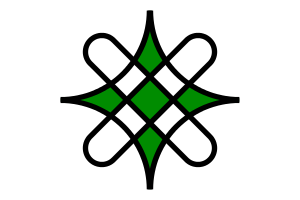Hausa people


The Hausa (autonyms for singular: Bahaushe (m), Bahaushiya (f); plural: Hausawa and general: Hausa; exonyms: Ausa!Francophonic spelling: Haoussa) are one of the largest ethnic groups in Africa. The Hausa are a diverse but culturally homogeneous people based primarily in the Sahelian and Sudanian Daura area of northern Nigeria and southeastern Niger, with significant numbers living in Cameroon, Ivory Coast, Chad, Togo, Ghana,[3] Sudan, Gabon and Senegal.
Predominantly Hausa-speaking communities are scattered throughout West Africa and on the traditional Hajj route north and east traversing the Sahara, with an especially large population in and around the town of Agadez. Other Hausa have also moved to large coastal cities in the region such as Lagos, Accra, Abidjan, Banjul and Cotonou as well as to parts of North Africa such as Libya over the course of the last 5,000 years. Most Hausa, however, live in small villages or towns in Africa, where they grow crops, raise livestock including cattle and engage in trade. They speak the Hausa language, an Afro-Asiatic language of the Chadic group. The Hausa aristocracy had historically developed an equestrian based culture.[4] Still a status symbol of the traditional nobility in Hausa society, the horse still features in the Eid day celebrations, known as Ranar Sallah (in English: the Day of the Prayer).[5] Daura city is the cultural centre of the Hausa people. The town predates all the other major Hausa towns in tradition and culture.